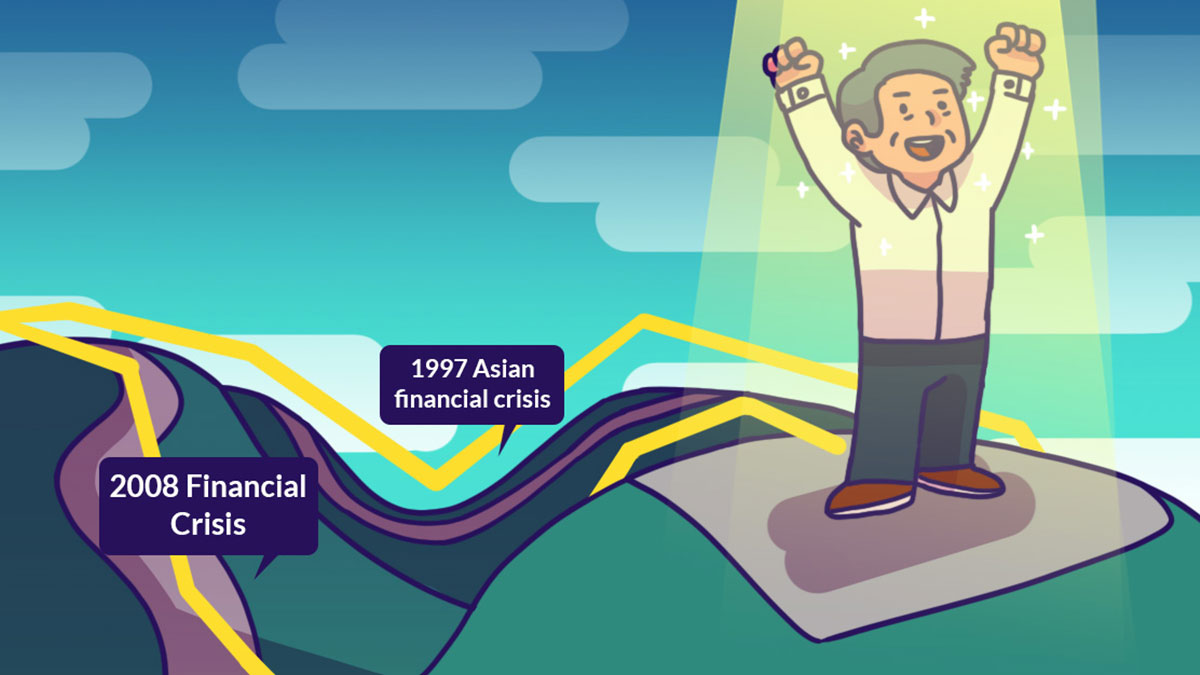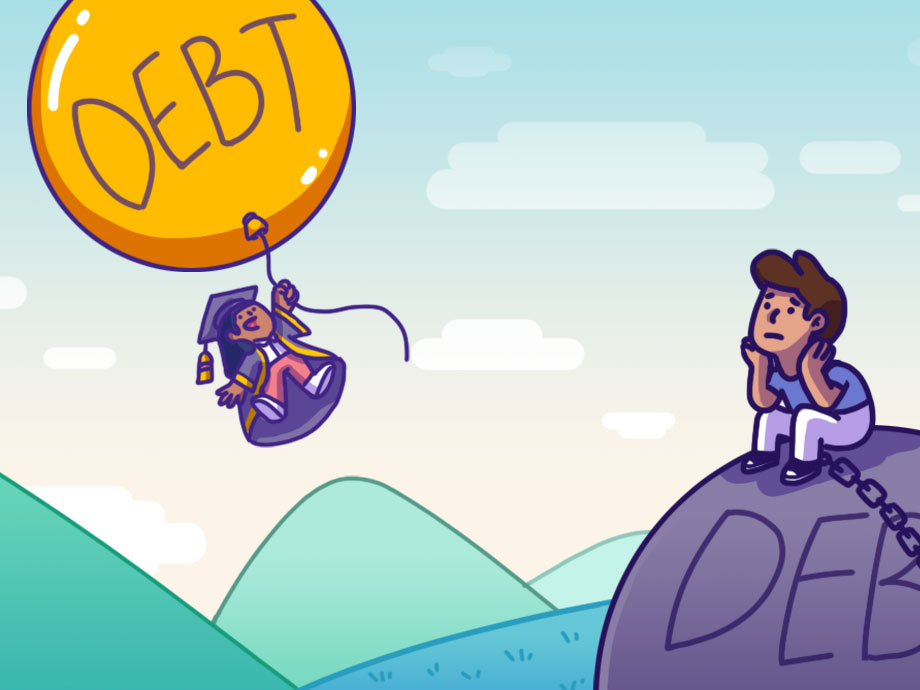Career & Education | Life | Article
How an Engineer-Turned-Entrepreneur Survived Two Recessions
by Sophia | 1 Jul 2020 | 7 mins read

He graduated in 1993 at age 26, just as the economy was working its way out of a recession. He would later have to be retrenched at 41 years old, when the Great Recession hit Singapore’s shores. But over the course of his long career, facing off against two recessions, Alan* was fixated on only one thing: learning the skills he wanted in order to become a business professional one day.
A graduate of Glasgow University, Alan recounts the economic situation at the time: “The unemployment rate was high in the UK, so my plans to work there after graduation were squashed very quickly.”
With no other option available to him because of the recession, Alan moved back to Singapore and began sending out job applications at random, without much of a vision for his career at the time.
Does all this sound familiar? After all, millennials graduated (mostly) around the 2008 recession, only to be hit with a new recession 12 years later–much like Alan, who graduated in a recession, and was later hit with the 2008 recession 15 years later.
History seems to be repeating, so we might be able to learn a thing or two from Alan about adapting with the times and living through two whole recessions.
*not his real name
‘The Start of My Journey as an Entrepreneur’
When the first offer came (6 months into the job search) from Pioneer Electronics, a Japanese company, Alan readily accepted it even though his starting salary had taken a hit because of the recession.
He worked as a R&D engineer and eventually worked his way up to the role of assistant manager, where he oversaw a small team of engineers.

It was around that time in 1998 that he took up a Master of Science degree in technology management at NUS, and realised that his focus was shifting towards honing his business skills, rather than technical ones.
In 1999, Alan joined SingTel as a product manager in a time where the telco industry was just beginning to open up and expand. His experience with product management and marketing was invaluable; Alan compares his time with SingTel to how a startup would launch its first ever product into the market.
“I didn’t know it then,” he tells me, “but I was picking up many skills that were going to be useful for me later on as an entrepreneur and business professional.”
He later took on the role of an operations manager, where he learned to manage over a hundred employees. Alan’s sole fixation was this: “I wanted to hone my people management skills.”
“I needed these skills to become a business manager. I wanted to be good with people, technology, and process management,” he says. “I felt I was in a pretty good place where I could shape my skill set for the next big jump.”
Of Recessions and Retrenchments
Unfortunately, the next big jump for Alan turned out to be the 2008 recession. His company at the time underwent cost-cutting, and he was retrenched from his role. His first immediate thought was to think of ways to protect his livelihood.
With no other opportunities presenting themselves, Alan spent the next year working in an F&B startup.
“I had to keep myself busy,” he says. That year, unsurprisingly, his pay took a huge dive. But Alan steadied himself with startup work.
He eventually found a better opportunity to bounce back in the following year with a big American company, where he supported its operations. That new opportunity gave him the chance to pick up client management skills.

During this time, Alan knew it was time to pursue what he really wanted to do: becoming an entrepreneur.
Two years after joining the American firm, he created his first startup in wine distribution with an old business acquaintance, and took another big pay cut. By that time, Alan had already acquired all the skills needed to become a proper business manager and entrepreneur, and went ahead to pursue his new plans.
His experience with recessions and being retrenched also influenced his decision to strike it out on his own as a business manager. The salary cut that came with entrepreneurship didn’t deter him either. “It’s something I always wanted to do. I knew if I didn’t give it a go, I’d regret it for the rest of my life,” he says to me.
Three years in, he sold his shares back to his co-founder (who is still doing well today) and started his next business venture that was in line with a rising trend: digitisation. As a result, his next few products were aimed towards enhancing one’s digital lifestyle, from F&B pre-payment apps to geo-location recommendation apps for tourists and locals.
Skills First, Salary Second
Alan looks back on his career with a sense of pride and accomplishment. Despite not having a clear cut vision for himself when he first graduated in 1993, Alan kept himself focused with his love for learning and eagerly explored new opportunities where he could, and ultimately overcame two bouts of recessions.
“I knew what skills I wanted to have,” he says. “I love learning new things because it’s important to me that I remain relevant. That drives me.”

Throughout the years of his career, Alan notes that his priority was never about salary or immediately securing his “dream job.”
“It’s unlikely that your first job will be your dream job, unless you know the right people,” he says frankly. “So the next best thing you can do is to plot out short- and medium-term goals that will help you gain the experience and skills you need to get to where you want to be.
“Don’t worry about salary when you’re in the early stages of your career,” he stresses.
Been There, Done That
Today, Alan is still a thriving business manager and entrepreneur, and is constantly seeking new frontiers as a professional.
For someone who’s been through nearly the same thing millennials of today are struggling with, we should be able to draw some hope from Alan’s story over the last few decades. Despite having graduated in a time of recession and later facing off with another recession mid-career, Alan pulled through because of his focus on building himself up as a skilled business professional. His parting advice?
“We are in extraordinary times. Instead of waiting for things to get better, find ways to build your skill sets. It will give potential employers the confidence that you’re capable of doing the job.”
For millennials and young fresh graduates who are struggling with the 2020 recession, fret not. Alan’s story proves that this is just another hurdle that can be overcome, as many people have done before for past recessions.
Listen to our podcast episode on how fresh graduates can navigate the job hunt during a recession!














